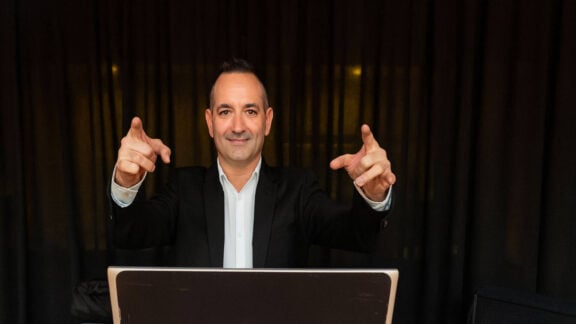The ongoing humanitarian crisis as a result of the austerity measures imposed by the eurozone has become a tragedy of epic proportions.
I don’t think the general population here in Australia really has a true sense of the catastrophe that has befallen the Greek people.
We, as Greek Australians however, only know too well how it has affected people’s daily lives and wreaked havoc on generations of Greeks, young and old, where the basics of life – food, medicine and shelter – the things we take for granted, are now beyond the reach of many Greeks.
Our relatives and loved ones are suffering. One of my aunts, who once owned her own home, has now been reduced, at the age of 91, to living in the basement room of an apartment block with no window with her unemployed 63-year-old son. Generations of young Greeks are doomed to a life of misery without hope and prospects because the tyranny of austerity demands nothing less.
So why impose austerity measures that kill the lifeblood of a people? What’s the point of austerity when it reduces people’s capacity to feed themselves and their children? Why ignore the democratically elected Greek government’s right to determine reforms and to stimulate economic and social activity in a way that preserves dignity and self-determination?
Why austerity?
Because EU policy towards heavily indebted countries like Greece is one of extending the pay-back period, but pretending that all debts will eventually be paid.
So why is this fiction being continued?
It’s not just the political expediency of debt extension to placate German voters, or the prospect of contagion to other countries such as Portugal, Ireland and Spain.
The underlying reason is that those in power do not really want the debt to be fully repaid. The real goal of lending money to the debtor is not to get the debt reimbursed with a profit, but rather the indefinite continuation of the debt that keeps the debtor in permanent dependency and subordination.
When Argentina a decade or so repaid its debt to the IMF, the reaction of the IMF was surprising – it expressed a worry that Argentina would use its new freedom and financial independence from international financial institutions to abandon tight financial policies and engage in careless spending.
As Slavoj Zizek points out, the ongoing pressures on Greece to implement austerity measures fits perfectly with what psychoanalysts call the superego.
The superego is not an ethical agency proper, but a sadistic agent, which bombards the subject with impossible demands, obscenely enjoying the subject’s failure to comply with them. The paradox of the superego is that the more we obey its demands, the more we feel guilty.
It’s not unlike a vicious teacher who assigns his students impossible tasks, and then sadistically jeers when he sees their anxiety and panic. This is what is so wrong with the EU demands; they do not give Greece a chance – Greek failure is part of the game.
This is why the EU establishment are so concerned about SYRIZA – they admit debt, but without guilt.
Varoufakis has fully acknowledged the weight of the debt, but since the EU austerity measures haven’t worked for seven years, and in fact the debt is even larger now, and therefore clearly not working, another path needs to be found.
But what Tsipras and Varoufakis also acknowledge, I think, is that the biggest threat to Greece is the corrupt state of Greece itself – what the EU should be blamed for is that while it criticised Greece for its corruption and inefficiency, it supported the politics of New Democracy, which embodied this corruption and inefficiency.
For this reason, the main task of all progressive people is to express their solidarity with SYRIZA as they try to cut the Gordian knot of neoliberal dogma.
SYRIZA’s struggle reaches far beyond a set of demands around the basic needs of its people – it is the struggle to find a new path that honours the integrity of its people, the struggle to find an entirely new way of life that doesn’t merely pay heed to a world threatened by rapid globalisation and a culture of servitude.
As a filmmaker, this bigger narrative is one which I believe will be expressed by the great artists and storytellers of Greece – whilst they have been decimated by austerity, I feel a great sense of hope that this next generation of storytellers will shine a light on these human realities and keep the ideas of freedom and democratic practice alive.
In the same way that Greeks themselves have found new ways of cooperating and have banded together through this crisis, the lessons they will learn and the new paths they will forge will become a beacon for us all. The very fact that SYRIZA persists in the struggle for a humane outcome to its negotiations with the Euro policymakers means there is a chance for us all in our pursuit for freedom and equality.
I join with you all in expressing our solidarity with SYRIZA and the Greek people.
Note: In an effort to try and understand the issues around austerity beyond the usual political discourse, I found Slavoj Zizek’s thoughts on the Greek crisis the most compelling. I have drawn heavily on his thoughts for this speech.
* Ana Kokkinos is a well-known film director. This article is based on a speech presented by her on 21 April 2015 at the Greek-Australia Solidarity Campaign meeting in Melbourne.





